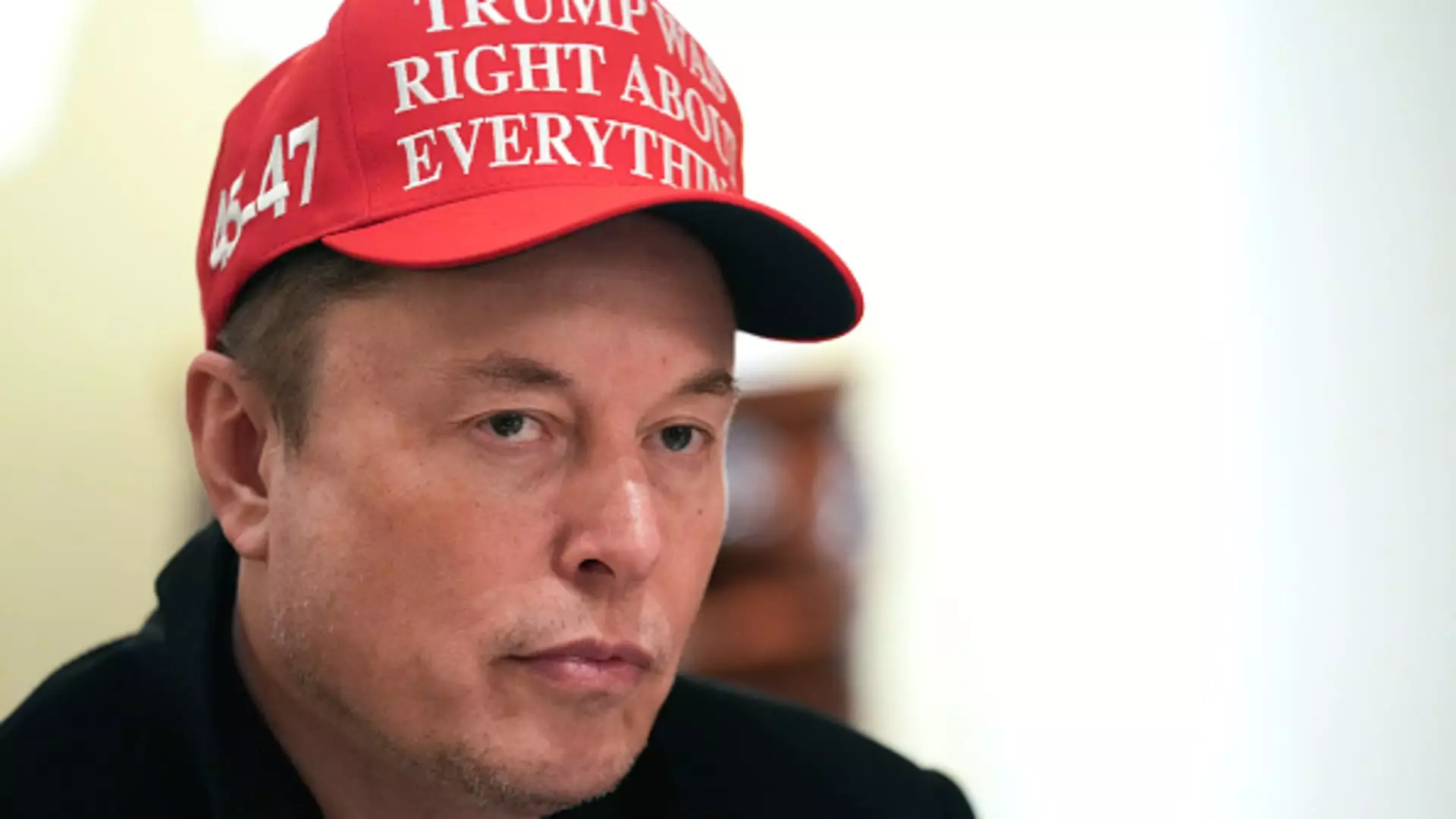Tesla’s stock performance paints a perplexing picture that leaves many investors and analysts questioning the company’s trajectory. On a recent Monday, the shares plummeted nearly 6%, closing at $227.50—barely $6 above its annual low. This latest drop marks the culmination of a tumultuous year for Tesla, with a staggering 44% decline observed thus far. The company faced one of its toughest quarters since 2022, closing the first quarter in March with overwhelming negative sentiment that translated into market volatility. Analysts are beginning to categorize these patterns as “ongoing brand erosion,” which could potentially signal deeper issues at play within the company.
The recent figures reveal that it is the twelfth instance this year where Tesla’s stock has witnessed a single-day decline exceeding 5%. Such frequent downturns suggest that the electric vehicle giant’s brand may be losing its luster, not only in the markets but also in the eyes of consumers. Investors seem increasingly alarmed by external pressures affecting Tesla’s reputation, including CEO Elon Musk’s preoccupations beyond the auto industry, notably his association with political activities and his controversial role in the Trump administration.
Brand Erosion and Political Controversy
One of the most profound challenges Tesla faces today appears to be the direct correlation between Musk’s political affiliations and the brand’s declining sentiment. With over 300 inquiries surrounding Tesla’s self-driving technology submitted for the upcoming earnings call, it is clear that stakeholders are not only curious about technical advancements but are deeply concerned with how Musk’s actions may influence public perception. The political whims articulated by Musk—including his substantial financial support to help re-elect Trump—are increasingly perceived as detrimental to Tesla’s brand integrity. One inquisitive investor even questioned what measures the board has taken to mitigate the fallout from Musk’s political involvement.
In Europe and parts of the U.S., backlash has manifested through protests and boycotts directed at Tesla, a troubling sign for a company whose image is built on innovation and sustainability. Furthermore, various criminal incidents targeting Tesla vehicles imply a wide-reaching impact of Musk’s personal brand overshadowing the company’s mission. Analysts speculate that this erosion of trust could result in a consumer landscape less inclined to consider Tesla as a viable choice for electric vehicles.
Struggling to Maintain Market Share
Tesla’s recent delivery statistics add another layer of complexity to the brand’s narrative. Reporting 336,681 vehicle deliveries in the first quarter signified a decline of 13% compared to the previous year’s figures. Such a downturn does not occur in isolation but alongside expectations of a slight revenue decrease, projected at $21.24 billion for the first quarter. While some optimists hope for a “turnaround vision” from Musk, the reality is stark: increasing competition within the electric vehicle market necessitates a concerted effort to revitalize consumer interest.
The problem is further complicated by the growing significance of the Chinese market. In their analysis, Oppenheimer analysts highlighted mounting challenges for Tesla in China, where nationalist consumer tendencies may lead buyers toward local brands. This shift could drastically reduce Tesla’s competitive edge and force them into exporting China-made vehicles at potentially reduced prices, challenging their profitability.
The Stakes Are High for Tesla’s Future
Compounding the current issues are fears surrounding governmental tariffs under the Trump administration, raising concerns about the company’s revenue and earnings outlook. The erosion of the Tesla brand is reflected in recent consumer sentiment surveys, which show a decline in the number of people willing to consider a Tesla purchase—dropping from 46% in January 2022 to merely 27% in March 2023. This staggering difference indicates a potential long-term threat to Tesla’s market position, unless concerted efforts are made to counteract these public relations woes.
The responses from analyst firms such as Barclays suggest an entrenched skepticism among financial entities. Maintaining a sell rating and adjusting price targets downward reflect serious doubts about Tesla’s fundamental stability and growth prospects amidst market shifts. Even the most fervent supporters of Tesla’s vision are beginning to mull over the implications of Musk’s overwhelming public persona eclipsing the brand they once championed.
While investors pin their hopes on forthcoming earnings calls and a potential pivot in Tesla’s branding strategy, the overarching narrative suggests that without substantial changes, Tesla risks becoming a cautionary tale in brand management and market resilience.

